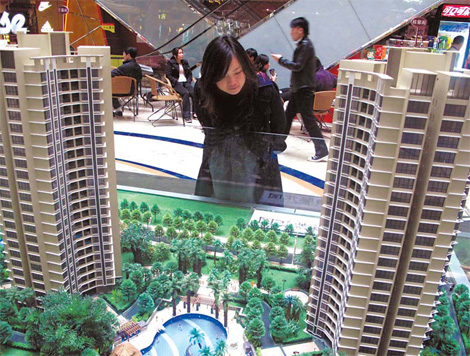Society
The rise and rise of the 'rich class'
By Zhao Lei (China Daily)
Updated: 2010-02-17 10:15
 |
Large Medium Small |
Real estate tycoons crowd list of wealthy Chinese: expert

Chen is one of the China's rapidly expanding "rich class". He has several properties in Beijing, including a grand courtyard house he uses solely to entertain friends and business associates.
The large siheyuan, a traditional house found in the capital's sprawling hutongs, cost Chen 12 million yuan ($1.75 million), suggesting he is far removed from those who sweat and struggle for years to afford small, humble homes.
China has seen a massive expansion in the rich class in the past five years, according to analysts.
"The country's fortune is increasing at a skyrocketing speed and is converging toward the rich class," Rupert Hoogewerf, founder of the Hurun Rich List, told Outlook Weekly.
"The number of people with a personal wealth of more than 1 billion yuan has rapidly risen since 2004. Then, there were 100. In 2009, we discovered that 1,000 people are now in the club."
A spokesman for the Forbes China Rich List also said the threshold for being among the 400 richest people on the Chinese mainland had risen from 1.22 billion yuan in 2008 to 2.05 billion yuan last year.
The growth in Chinese millionaires alone has attracted interest for multinational companies, including Deutsche Bank AG, which is planning to target more services to China's rich class, reported the German press.
According to other experts, the rich class is a group with only one thing on their mind: property.
A recent poll of wealthy people in Beijing and Shanghai by the Beijing Youth Daily found most owned at least three properties, while many subscribe to the traditional belief that, if you have money, you should invest in property.
Some also had shares in listed companies that have thrived in the country's real estate-fueled stock market, the survey found.
"The most significant difference between the 400 richest people in the United States and in China is that the real estate business owners have been removed from the US list. Meanwhile, hundreds of their Chinese counterparts crowd China's lists," said Russell Flannery, Forbes' Shanghai bureau chief.
Despite the increasing fortunes, however, the rich list features mostly people in East China.
More than half of the richest people live in Beijing and Shanghai, as well as Guangdong, Zhejiang, Jiangsu and Shandong provinces, Cherry Leung, managing director of Boston Consulting Group Greater China, told Beijing Youth Daily.
Although the rich class is becoming richer, analysts said their reputation for lacking social responsibility and a moral conscience often evokes mistrust among the public and criticism in the press.
The image of the rich class has also been damaged by several scandals involving business leaders on wealth lists.
"Money cannot make someone an aristocrat. A mature rich class will burden social responsibility," Hoogewerf told Outlook Weekly.







